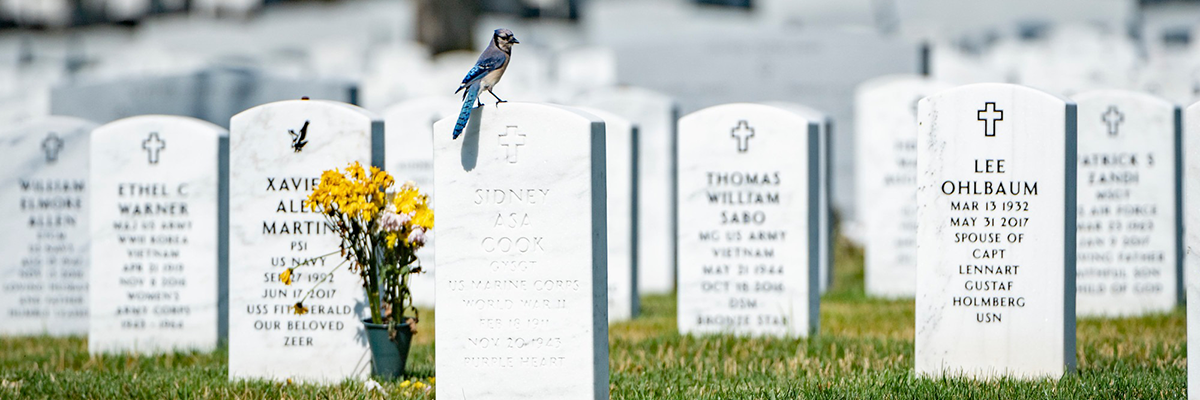National Cemeteries To Be Mapped By Texas A&M Multidisciplinary Team
The Department of Geography’s Dr. Stacey Lyle is leading the team, which will develop a digitized national cemetery experience.
Jan 26, 2021

The National Cemetery Administration (NCA) has awarded a contract to the Texas A&M Engineering Experiment Station as part of NCA’s Veterans Legacy Program (VLP) to engage Texas A&M University students in the development of an immersive and interactive digitized national cemetery experience.
“We are excited to be partnering with Texas A&M University,” said Randy Reeves, under secretary for memorial affairs. “With this contract, we will make great progress towards our goal of ensuring that every veteran’s story continues to be told – even when it is not possible to visit a VA cemetery. This is an important step in ensuring ‘No veteran ever dies.’”
This initial $249,832 award, part of a $22 million contract, will provide support to faculty, undergraduate and graduate students from Texas A&M’s Department of Geography, Department of History, and Zachry Department of Civil and Environmental Engineering. Researchers will develop geographic information system (GIS)-based applications to allow public contributions to memorialize veterans interred in three VA cemeteries: Houston National Cemetery and San Antonio National Cemetery in Texas, and Alexandria National Cemetery in Virginia. The one-year contract was awarded on Sept.16, 2020.
“Capturing U.S. veterans’ legacies and enabling virtual visits to their headstones through technology requires a transdisciplinary approach,” said Dr. Stacey Lyle, Texas A&M Engineering and Geosciences associate professor of practice, who leads the project team of four faculty and five students. “By transcending disciplinary boundaries between history, geoscience and engineering, we will preserve and make accessible the stories of American veterans’ great contributions to our freedoms, for all people to experience.”
The project will also use geospatial equipment donated by Trimble Navigation to the College of Geosciences.
“Students are using the eCongnition and Inpho UASMaster software in the Texas A&M University Trimble Lab to automate the extraction and interpretation of headstone information captured with drone imagery into a community database,” Lyle said. “Citizen scientists and the community want to visit the headstones using their cellphones at the national cemeteries, but currently paper maps are the only method to locate the desired headstone. To insure visitors find the headstone quickly and correctly, highly accurate geospatial locations provided from the Trimble R-10 GNSS surveying equipment is needed.”
Students from Texas A&M’s Corps of Cadets will contribute biographical research of veterans interred in those cemeteries and others. And, the Texas A&M project team will partner with Klein Independent School District in Houston to create GIS-based learning opportunities for students and professional development for STEAM (Science, Technology, Engineering, Arts and Mathematics) teachers.
“Programs like the Veterans Legacy Program are important to our country for many reasons. They allow us to preserve our nation’s history and legacy while using that same knowledge to shape our future,” said Brig. Gen. Joe E. Ramirez, Jr. ’79, commandant of cadets at Texas A&M. “I’m proud that the Corps of Cadets is involved with this project. As guardians of tradition, we take pride in honoring our past while preparing leaders for the future. For over 140 years, the Corps has taken great care to preserve and execute the most time-honored traditions at Texas A&M. It will be no different with the stories of our nation’s veterans.”
This work will contribute to NCA’s efforts to enhance the on-site national cemetery experience through technology while also extending that experience to citizens who are unable to visit a national cemetery.
Written in collaboration with the Texas A&M College of Engineering and Texas A&M College of Liberal Arts.

